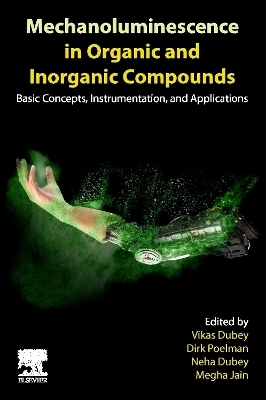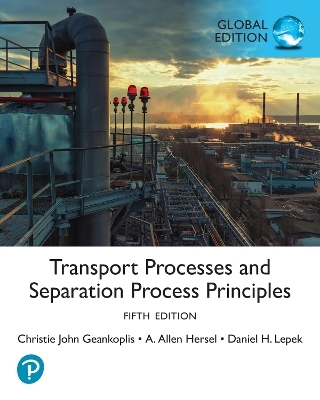
Mechanoluminescence in Organic and Inorganic Compounds
Elsevier - Health Sciences Division (Verlag)
978-0-323-95301-6 (ISBN)
Dr. Vikas Dubey obtained his Master’s degree in Physics from the Govt. V.Y.T.PG. Autonomous College Durg, Chhattisgarh, India, and received gold medals for securing first rank. He obtained his PhD from National Institute of Technology, Raipur, Chhattisgarh, India. He is currently an Associate Professor in the Department of Physics at North-Eastern Hill University, Shillong, Meghalaya, India. During the last ten years of his research career, he has published more than 125 research papers in various reputed international journals, with more than 2500 citations. He has published 6 authored books, 12 edited books, and authored or co-authored several book chapters. He is also Editor of various reputed journals and has edited numerous special issues. Dirk Poelman is a full professor at Ghent University since 2012, where he is leading the research group Lumilab (http://lumilab.ugent.be/). He studied Physics and obtained his PhD on rare earth doped sulfide electroluminescent thin films at Ghent University (Belgium). He is author of 215 international (A1) publications in the Web of Science (h-index 41), editor of 5 books, author of 3 chapters in books, has over 150 contributions to international conferences (including more than 25 invited talks) and has (co)organized numerous conferences, such as EL2002 (Int. Conf. on Electroluminescence), ICTF14 (Int. Conf. on Thin Films) and "Phosphoros", the first international conference on persistent luminescence in 2011. In 2022, he will be the chair for the ICOOPMA2022 conference in Ghent. In addition, he is member of the international advisory committee or organizing committee of numerous conferences: IDW (International Display Workshops), ICOOPMA (Int. Conf. on Optical, Optoelectronic and Photonic Materials and Applications), CIMTEC, LUMIDOZ, Sol-Gel 2017, ISIEM2018. Dirk Poelman has experience in different fields of Solid State Physics research, including thin film deposition and optical characterization, photo-, electro- and cathodoluminescent materials, structural and electrical defects in semiconductors, photocatalysis for air purification, X-ray analytical techniques and human vision. His current research is focused on inorganic phosphors for white LEDs and displays and persistent luminescent materials for safety illumination and medical imaging. He is promoter-spokesperson of the concerted research action “Combining plasma treatment and (photo)catalysis towards an energy-efficient technology for abatement of polluted air (COP-CAT) at UGent. He is member (and former president) of the Belgian National Committee for Crystallography, promoter of DUBBLE (the Dutch-Belgian beam line at the ESRF synchrotron, Grenoble), board member of the scientific and technical research center diamond (WTOCD) and holds several administrative functions at the University. He is an editor for multiple sections of the international open access journal Materials (I.F. = 2.972) and main editor of the Journal of Luminescence (I.F. = 2.961). Dirk Poelman teaches numerous courses at Ghent University, both on the bachelor and master level. Govt.V.Y.T.PG. Autonomous College, Durg, India Neha Dubey is Principal Investigator at Govt.V.Y.T.PG. Autonomous College, where she began work following completion of her PhD at RDVV Jabalpur in 2016. She has co-authored 1 book, 3 book chapters and published more than 20 articles in reputed journals. She is an editorial board member for the journal Advance Physics Letters, and has received awards for her presentations at both national and international conferences. Ms. Megha Jain is a Senior Research Fellow in the Department of Basic and Applied Sciences at Punjabi University, in India. She has 14 publications in international and national peer review journals, and is a holder of the Young Scientist Award in the National Conference on Recent Advances in Chemical, Biological and Environmental Sciences. Her research areas focus on the application of techniques such as sol-gel, combustion, co-precipitation and hydrothermal for synthesis of nanomaterials, studying structural properties of metal oxides through refinement techniques (specifically rietveld refinement of x-ray diffraction data) and x-ray absorption spectroscopy, inducing and modifying the defect states within crystal structure by various means such as varying synthesis conditions, and studying the luminescence properties, particularly, photoluminescence, electroluminescence and thermoluminescence in the defected crystals.
1. Luminescence: Mechanism and its types
2. Theory and classification of mechanoluminescence
3. Instrumental set ups involved in mechanoluminescence
4. Synthesis of organic and inorganic mechanoluminescent compounds
5. Impact of doping on the mechanoluminescence
6. Mechanoluminescence for display devices
7. Mechanoluminescence for photocatalysis
8. Mechanoluminescence for infrastructure health and safety applications
9. Mechanoluminescence in anti-counterfeiting
10. Mechanoluminescence in visual electronic/wearable skin
11. Mechanoluminescence for reconstructing 3D ultrasonic field
12. Other emerging applications of mechanoluminescence and outlook
| Erscheinungsdatum | 25.05.2024 |
|---|---|
| Verlagsort | Philadelphia |
| Sprache | englisch |
| Maße | 152 x 229 mm |
| Gewicht | 450 g |
| Themenwelt | Technik ► Umwelttechnik / Biotechnologie |
| ISBN-10 | 0-323-95301-8 / 0323953018 |
| ISBN-13 | 978-0-323-95301-6 / 9780323953016 |
| Zustand | Neuware |
| Haben Sie eine Frage zum Produkt? |
aus dem Bereich


